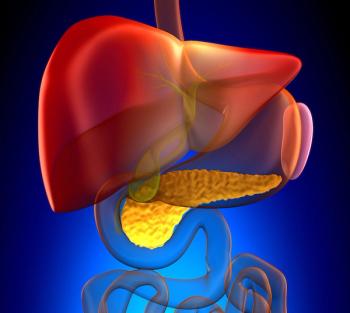
Clinical
Latest News

Latest Videos

CME Content
More News

A recent study found that children with sleep-disordered breathing who live in areas with greater socioeconomic vulnerability are less likely to meet with an otolaryngologist after being referred by their primary care physician.

Researchers used data to develop a nomogram that identified factors associated with worse prognoses in patients with non–small cell lung cancer (NSCLC) and liver metastases.

About 15% of cases of large granular lymphocytic leukemia involve natural killer cells.

A new study of patients receiving care for acute heart failure at Rambam Health Care Campus in Haifa, Israel, investigated how their clinical outcomes might be affected by elevated lactate levels and primary acid-base disorders.

A recent study found that community-dwelling older adults with chronic obstructive pulmonary disease (COPD) were more likely to experience geriatric conditions.

Data from 2015 show approximately half of US-born adults were exposed to harmful levels of lead as children; Florida’s Department of Health to advise against COVID-19 vaccination for "healthy" children; Black patients remain underrepresented in clinical trials for newly approved drugs despite FDA efforts.

For 30 days, migraineurs were randomized to an FDA-approved dental device to help jaw clenching or a placebo device.

As more data are gathered on teprotumumab for use in thyroid eye disease (TED), we’ll have a better understanding of which subgroups respond better or worse to the treatment, explained Robert G. Fante, MD, FACS, president of the American Society of Ophthalmic Plastic & Reconstructive Surgery and facial plastic surgeon and cosmetic surgeon, Fante Eye & Face Centre in Denver, Colorado.

This article presents an evaluation of testosterone marketing practices around the period of the testosterone label warning by physician specialty and rural vs urban primary care service area.

A new review article outlines the latest research and results into programmed cell death-1/programmed cell death ligand-1 (PD-1/PD-L1) inhibitors for the treatment of myelodysplastic syndromes (MDS) and acute myeloid leukemia (AML).

Although chimeric antigen receptor (CAR) T-cell treatments have shown efficacy in certain cancers, targeting multiple antigens and overcoming production limitations may advance the field and make this therapy more effective and accessible.

Parkinson disease is believed to have a prodromal phase, long before neuronal death occurs, and some studies have focused on the gut-brain axis to look for clues.

A small study found that decreased retinal vascular density identified by optical coherence tomography angiography may be linked to faster visual field loss at extended follow-up.

The researchers observed internal consistence and convergent validity, leading them to suggest the tool be incorporated as a clinical standard in spinal muscular atrophy (SMA) care.

Low-burden mutations, or minor clones, of TP53 abnormalities were once thought to be of little significance but that is no longer the case, according to a recent report.

A small study in northwestern China suggests earlier detection of depression and anxiety in patients with pulmonary arterial hypertension may improve patient quality of life.

With clear differences at baseline and subsequent declines seen in a linear pattern, the researchers suggested peak expiratory flow may be a suitable outcome measure for longitudinal assessment of respiratory muscle strength in these patients.

Researchers assessed whether physical activity was associated with less analgesic use for headache disorders.

Investigators sought to show how individual cases could be clarified through the use of flow cytometry analysis.

Data from 22 studies were collected on reported hair loss with isotretinoin treatment, showing a hair loss frequency of 3.2% for patients receiving <0.5 mg/kg/day and a frequency of 5.7% for patients receiving ≥0.5 mg/kg/day.

Not all Guillain-Barré cases are associated with infection, and studies have suggested a link between the rare disorder and certain cancers, including lymphomas.

A recent study found that men, smokers, and older people are more likely to have asthma symptoms without a diagnosis of asthma, which can likely be attributed to other factors regarding their overall health.

A Medicaid managed care plan developed a pilot program to assist special needs youth with transition to adult care. Case studies and discussion present findings.

A recent study demonstrates certain driver mutations in patients with non–small cell lung cancer (NSCLC) may shorten disease-free survival after combination neoadjuvant immunotherapy and chemotherapy.

New data revealed that among patients with type 2 diabetes (T2D), presence of nonalcoholic fatty liver disease (NAFLD) may raise the risk of severe hypoglycemia episodes.















